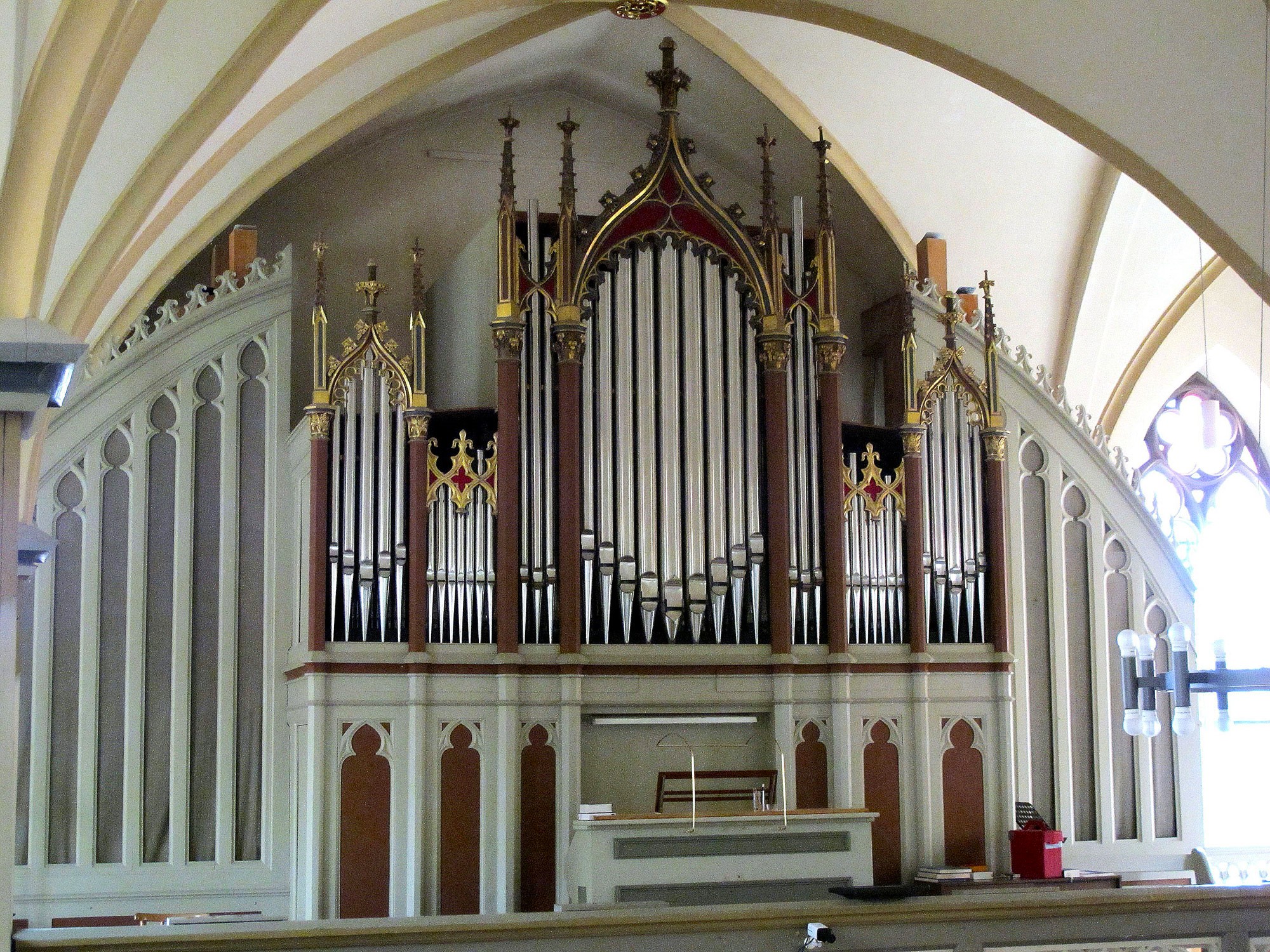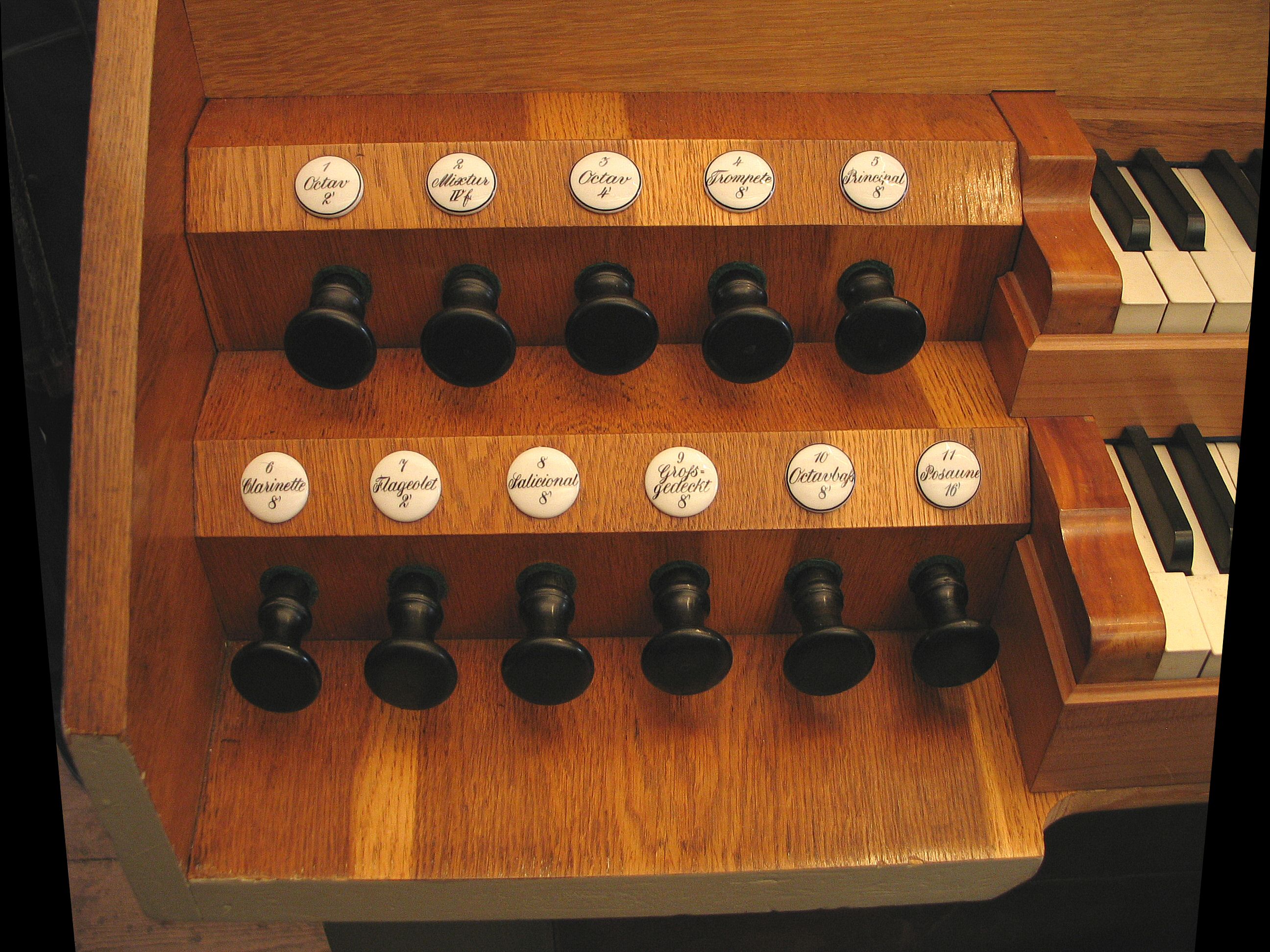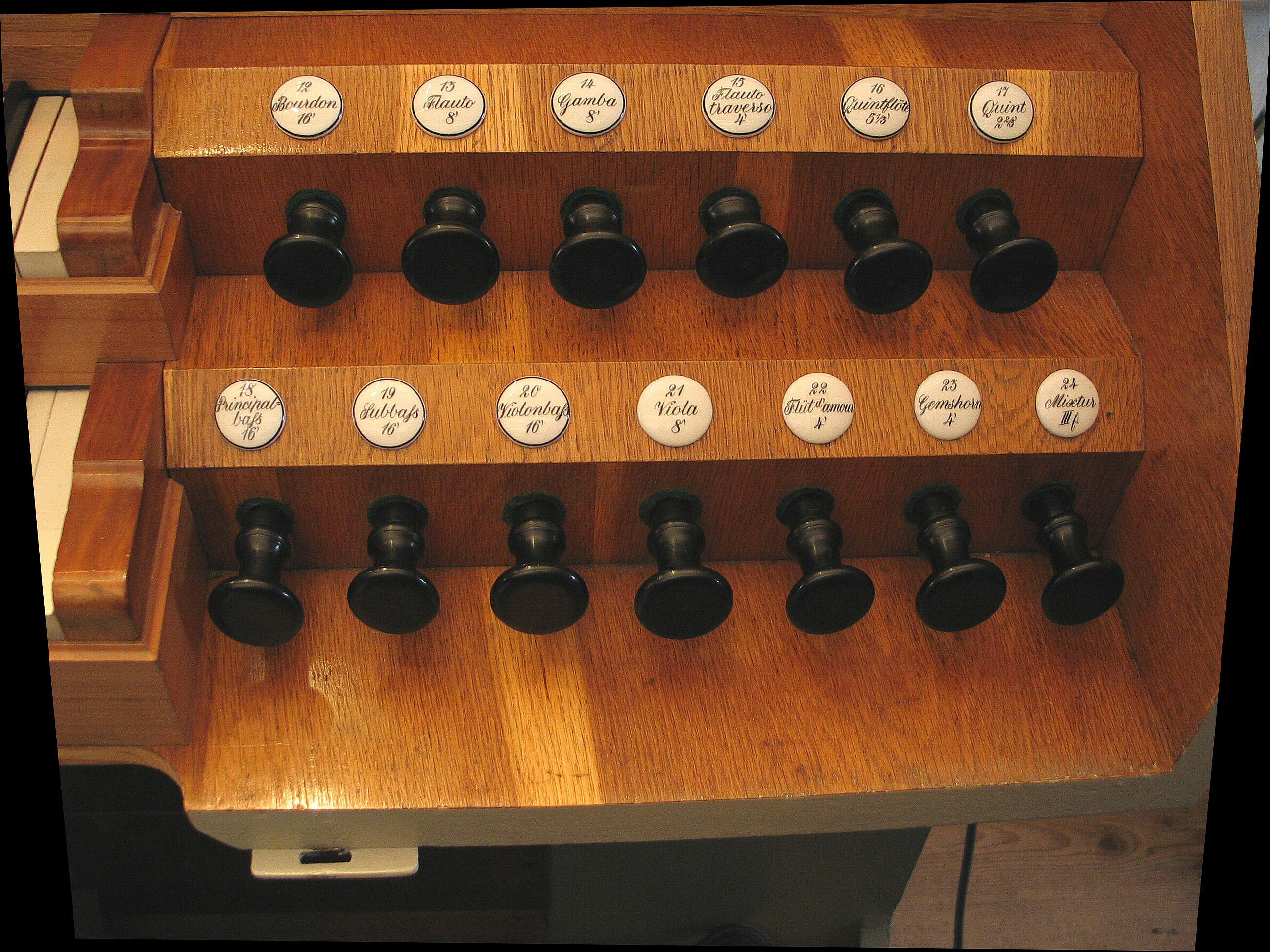Gönningen, Peter und Paul
| Builder | F. X. Engelfried |
|---|---|
| Year | 1844 |
| Period/Style | Romantic |
| Stops | 24 |
| Keyboards | 2+P |
| Keyaction | tracker/mechanical |
| Tuning | Equal at 440 Hz |
| Sampleset |
Available
 , sampled by
OrganArt Media
, sampled by
OrganArt Media
|
The 1844 Franz Xaver Engelfried organ, located in the Evangelical Peter and Paul Church in Gönningen, Baden-Württemberg, Germany, resides within a neo-Gothic styled church expanded in 1842. This historical church, constructed from tuff stone, boasts exceptional acoustics that have made it a favored venue for recording international choir, organ, and chamber music CDs. The church and its organ are a testament to the rich musical heritage of the region surrounding Reutlingen and Tübingen in South Germany.
This organ, originally built by Franz Xaver Engelfried from Horb, features both classic and romantic registers including Salicional, Viola, and Clarinette, the latter being non-beating. Throughout the 19th century, it underwent several modifications and tonal changes in keeping with contemporary tastes of the time, which included complete replacement of the reed stops. In 1970, Richard Rensch's organ workshop from Lauffen undertook a pioneering restoration to revert the organ to its original early Romantic disposition, along with some expansions. This restoration was based on original documents and parts of the historical reed stops found, allowing for a faithful reconstruction.
Despite proposals to dismantle it around 1970, when interest in restoring such instruments was minimal, the organ was preserved and underwent further cleaning and general maintenance by Orgelbau Rensch in 2005. Today, it stands as one of the few surviving early Romantic organs in Germany, ideal for playing music from the late 18th and early 19th centuries, including works by Bach. The organ, featuring mechanical action and couplers, is fully playable and maintained in good condition. It regularly features in concerts during the "Reutlingen Organ Summer," resonating in a space with a reverberation time of approximately 3.5 seconds.
This organ, originally built by Franz Xaver Engelfried from Horb, features both classic and romantic registers including Salicional, Viola, and Clarinette, the latter being non-beating. Throughout the 19th century, it underwent several modifications and tonal changes in keeping with contemporary tastes of the time, which included complete replacement of the reed stops. In 1970, Richard Rensch's organ workshop from Lauffen undertook a pioneering restoration to revert the organ to its original early Romantic disposition, along with some expansions. This restoration was based on original documents and parts of the historical reed stops found, allowing for a faithful reconstruction.
Despite proposals to dismantle it around 1970, when interest in restoring such instruments was minimal, the organ was preserved and underwent further cleaning and general maintenance by Orgelbau Rensch in 2005. Today, it stands as one of the few surviving early Romantic organs in Germany, ideal for playing music from the late 18th and early 19th centuries, including works by Bach. The organ, featuring mechanical action and couplers, is fully playable and maintained in good condition. It regularly features in concerts during the "Reutlingen Organ Summer," resonating in a space with a reverberation time of approximately 3.5 seconds.
| Hauptwerk | Hinterwerk | Pedal |
|---|---|---|
| Bourdon 16 | Großgedeckt 8 | Principalbaß 16 |
| Principal 8 | Viola 8 | Violonbaß 16 |
| Flauto 8 | Salicional 8 | Subbaß 16 |
| Gamba 8 | Gemshorn 4 | Oktavbaß 8 |
| Quintflöte 5 1/3 | Flüt d'amour 4 | Posaune 16 |
| Oktav 4 | Flageolet 2 | |
| Flauto traverso 4 | Mixtur 3f | |
| Quinte 2 2/3 | Clarinette 8 | |
| Oktav 2 | ||
| Mixtur 4f | ||
| Trompete 8 |
Lefebure Wely Andante nr 5 opus 122
0:00
0:00
Moritz Brosig Praeludium d
0:00
0:00
Mendelssohn-Sonate6-01 Chorale Andante sostenuto Allegro molto
0:00
0:00
https://www.organartmedia.com/de/f-x-engelfried
 Pipe Organ Map
Pipe Organ Map

